News
TIFF Interview: Takashi Miike on ‘First Love’ and His Prolific Career

Takashi Miike has become a household name for fans of genre cinema. With over 100 titles under his belt — including Ichi the Killer, Audition, 13 Assassins, One Missed Call, Gozu, and Sukiyaki Western Django — Miike has been directing nonstop for almost 30 years.
I recently had the opportunity to sit down for a one-on-one with Miike following a screening of his latest film, First Love, at the Toronto International Film Festival.
Set over one night in Tokyo, First Love follows Leo, a young boxer down on his luck as he meets his ‘first love’ Monica, a callgirl and an addict but still an innocent. Little does Leo know, Monica is unwittingly caught up in a drug-smuggling scheme, and the two are pursued through the night by a corrupt cop, a yakuza, his nemesis, and a female assassin sent by the Chinese Triads. All their fates intertwine in spectacular Miike style, at his most fun and anarchic.
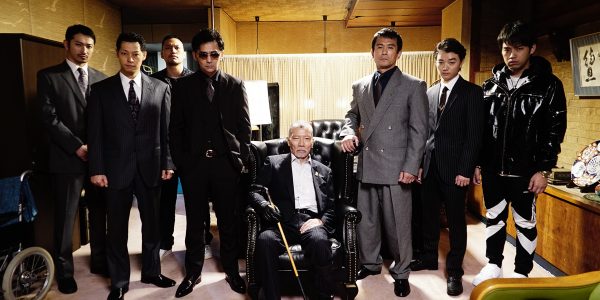
First Love via TIFF
Kelly McNeely: So what’s the genesis of First Love? Where did this movie come from?
Takashi Miike: So this all started from a proposal to make the kind of film that recently has been given short shrift in the Japanese film industry. A long time ago, we would be filming these kind of genre-esque films for direct to video projects. And I got a proposal from Toei Films to bring that kind of thing back, similar to like, the Dead or Alive, that kind of the B-cinema type of film.
I was very happy about that, because recently, a lot of the film industry is very adverse to anything that’s kind of genre film-esque. They’re very risk adverse, and they’re trying to go for all these commercial films. And so when I received this proposal, I thought, Oh, that’s great. I mean, I wasn’t expecting to get any proposal like this from a major film production company. And so I thought, well, I should do this then. So the idea was to work on it based off an original idea — an original script. And so I started working working with a script writer, and that’s how the film came about.
Kelly McNeely: Now, you obviously have a very prolific career, and you’ve done so many types of films; genre based, action, comedy, family films, period dramas… Is there a particular genre you enjoy working in the most?
Takashi Miike: Well, honestly, I am really not that aware of genres, and genre boundaries, per se. You have a period piece, right? You have a Yakuza film, you have a kids film, and there’s like this strict categorization going on of all these genres these days. But it didn’t used to be that way. And I still kind of see things through that previous filter, right, where it could be a Yakuza film, and yet it’s a comedy, right? Or it could be a kids show and it could be a tragedy, you could be at a funeral and someone says something, and everyone burst out laughing. So for me, it’s all mixed up.
But what for me is most important is these universal themes that bind us together. Like where am I going, what is the purpose of my life, what is death? To me, what is happiness? Can I be happy? How can I become happy and get happy or be happy? All these themes to me, those are the nuts and bolts that go into any kind of good film, and those are the same for me no matter what genre we’re talking about. And so — for me — a good film completely extends or is is not bound by the boundaries of genre.
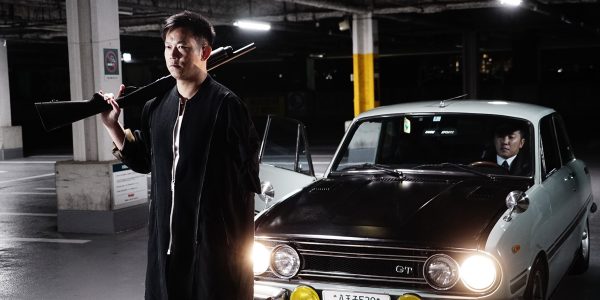
First Love via TIFF
Kelly McNeely: First Love has a lot of fantastic comedy — it’s very funny — and a lot of fantastic action. And there’s an animated sequence. Where did that anime sequence come from, the idea to bring that in?
Takashi Miike: I’ve had several films in the past that have transitioned suddenly from live action to anime, or from live action to claymation, for example. And so we’re working with budget constraints, we’re working with time constraints, and also, the human factor. And sometimes we would come up against these issues that would cause some complications in filmmaking. It would be very difficult to make this happen due to all these constraints.
But at the same time, we’re looking at the script, and we have these ideas in the script that we want to transmit — we want to convey that idea, or that plot development. And so we’re trying to make this film, and we have things like that come up. And so that’s kind of in the background, but really, more importantly than that, I actually wanted to incorporate an anime scene again in one of my films before we even started making this. So really, that’s kind of the reason. I looked at the script, and I said, actually, it would be fun to find a way to incorporate anime scenes in this film, and the chance to do that came up.
So yes, so the you have your live action Yakuza that parts of a film, right. And those live action parts of the film, because they’re depicting the Yakuza, they’re already in the fantasy realm. There’s this coolness or this vibe that you want to get across in those kinds of scenes. And just because of that very nature, you’re already in fantasy.
And the reason I say that you’re already in Fantasyland when you’re doing that is because those kinds of Yakuza do not exist in contemporary Japan, we’re depicting something that really no longer exists in Japan. So it’s not that much of a stretch for us to go from one fantasy type of a scene to a fantasy scene that has been depicted using a different method. So, for me to go from a live action Yakuza kind of fantastic scene, to a fantastic, very fantasy-esque scene that’s been developed using anime techniques is really not that uncomfortable. It doesn’t seem that out of place for me.
Kelly McNeely: You talked a little bit about working with budget constraints and using animation to incorporate ideas that you maybe could not necessarily film. What advice would you give to an aspiring filmmaker who wants to start directing?
Takashi Miike: So my advice, well, I’m not sure if my advice will actually be useful, or even appreciated by anyone. But since those aspiring directors have chosen that lifestyle, they’ve chosen to live in this world that is filmmaking. That’s one thing, it’s another thing to be able to pay the bills and put food on the table, right?
And so, my advice really is instead of focusing too much on tomorrow and the future, just focus on right now, the film that you’re making right now, put your focus on enjoying that process and just get completely lost in what you’re making right now.
Now, you may fight with your producer. And you may have some disagreements there. But if the film that you’re making right now is successful because you really put everything into it, and you just completely got lost and enjoyed the process. The chances of it being successful are greater. And if it’s successful, then you can reset the clock again, you can go back to zero, you can reset your relationship with your producer and you can start over again. So that really is my advice, is to just focus on what you’re making right now. Focus on what you’re doing right now instead of trying to meticulously calculate your future plan for filmmaking. Just focus on right now.
And then they should also drink lots of milk
Kelly McNeely: To stay strong?
Takashi Miike: Well, I say that because three years ago, we were actually filming on set and we were just doing like a rehearsal — like a run through, it was like a test run for the actors to do the scene. And suddenly — and I wasn’t doing anything, particularly difficult — but suddenly my left leg broke. And so instantly the film director just became baggage for everyone else working on the film. And so I say that because everyone needs to make sure they get enough calcium [laughs].
Kelly McNeely: Excellent advice! Now speaking of those kinds of experiences, you’ve made over 100 films and projects. Is there a particular film or experience of working on a film that really stands out to you the most, that you’re either most proud of, or that you enjoyed the most, or that is very memorable to you?
Takashi Miike: Yes, absolutely. So one of my films that I really love the most and I enjoyed the most was the film Fudô, and there’s a story behind that.
The reason why I enjoyed it the most or I had the most fun with that is because it was kind of at the beginning of my career, when I really had not much international recognition. And expectations were also very low. For the film, it was going to be a direct to video — it wasn’t actually going to be even released on any kind of recognizable format. So, it was okay if it didn’t sell at all, and it was very cheap. And the whole objective was just to get it done.
And actually, it was based on a manga. And the manga series that it was based on got canceled halfway through the series. But I saw something really interesting in that it just was very fascinating to me, and I thought let’s do this, this was not going to be released officially, it was just going to be a direct to video original work. And because of that we didn’t have any restraints at all. We didn’t have many checks and balances going on. And I just really focused on that.
I focused on it, and I just enjoyed it so much that I really didn’t even have time to sleep, I literally did not sleep when I was making the film. And then when we were done with it, my producer saw it and said, this is actually really good. Let’s actually turn this into a film release. And that became my first film that was actually picked up by a film festival. And it was actually picked up by Midnight Madness here at Toronto Film Festival. And so this half assed canceled manga series that I saw something in, it left this impression on me, and I saw something in that and just focused on that. And that became this success story that turned into my motivation. And gave me energy to continue to make films.
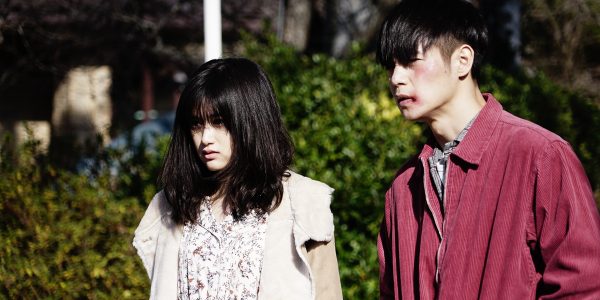
First Love via TIFF
Kelly McNeely: You are being honored with a Lifetime Achievement Award at Fantastic Fest very soon. How does that feel?
Takashi Miike: I think people see that as something that you should receive that like the very end of your life [laughs]. And so, maybe instead of being a being called a Lifetime Achievement Award, it should be kind of kind of like a halfway or mid career achievement award. That would be much more comfortable to me.
So it’s interesting, because in the film festival world, it really was foreign film festivals — not the Japanese film industry — that started to pay attention to my work. And that really offered me some emotional support for the work that I was doing. And it really inspired me to make more and more films.
And it was funny, because in Japan, I think a lot of people saw me traditionally as like, he’s not a real movie director or real film director. He’s just doing like those genre, or direct to video shows, those aren’t real movies, right? And it was kind of foreign audiences that took my work and said, No, this is good work. These are films, and these deserve an audience.
And so there’s a part of me that’s very thankful for that. They said, we don’t care about the genre, genre doesn’t matter. This is something that needs an audience, and these are films to us. And so I feel like if I do end up getting an award like that, I feel like that may give me some motivation and some additional energy to keep making films. And I feel like it may actually give me some freedom as well. To face my future in filmmaking with a little bit more freedom and a little bit more energy.
Kelly McNeely: Again, you’ve been making films and so many prolific films for so long, which is incredible. Do you feel your style as a director has changed over time, or is there anything that you feel that you’ve learned through that process that you carry forward with you?
Takashi Miike: So it’s funny, because I feel that the trajectory of my career as a filmmaker has actually been kind of reversed, compared to a lot of other filmmakers. As you go through the process of making films, you come up against all these challenges. And these problems that you’re trying to solve, and then these different types of films that you’d like to make, and so your to do list gradually gets bigger and bigger and bigger, and then what you’re trying to achieve — your target — as you move forward, also changes with each film.
Then you have your producer, or your sponsors who are funding your films, for example, and they have maybe something that they’re trying to achieve as well. So you’re looking at what they’re trying to achieve — their dream — and you’re also looking at what kind of dream or vision they’re trying to impart to their audiences. And that’s something that recently has become more and more important, to me, is to focus on what are the expectations of the people who are sponsoring me, and who are funding the films.
At the same time, I am a film director that has created an expectation in my fan base, to create films that have that violence in them. And so, someone might may say we want to make this film without any violence in it, or we think that it’s probably better to just tone it down a little bit. And I look at that, and I say, you know what, I have kind of this expectation, so let’s see, maybe if we can push the envelope a little bit, and see if we can incorporate some of that into there while still keeping the essence of the film. And so I enjoy that challenge.
That at the same time has kind of made it so that I see myself in a new light; it’s brought me to this place where, like, a new me is born. And I see myself changing through this process, which for a long time was very scary. But now I see it as something that’s very fun. It’s fun! It’s interesting for me to think about the prospect of changing as a filmmaker as I’m moving forward. So I hope that answers your question.
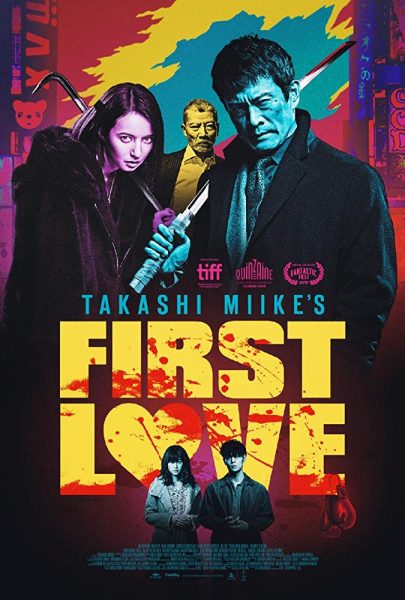
Click here for more reviews and interviews from TIFF 2019!
Want to stay up-to-date on the latest horror news? Click here to sign up for our eNewsletter.
'Civil War' Review: Is It Worth Watching?
Follow our new YouTube channel "Mysteries and Movies" here.

Movies
‘Evil Dead’ Film Franchise Getting TWO New Installments
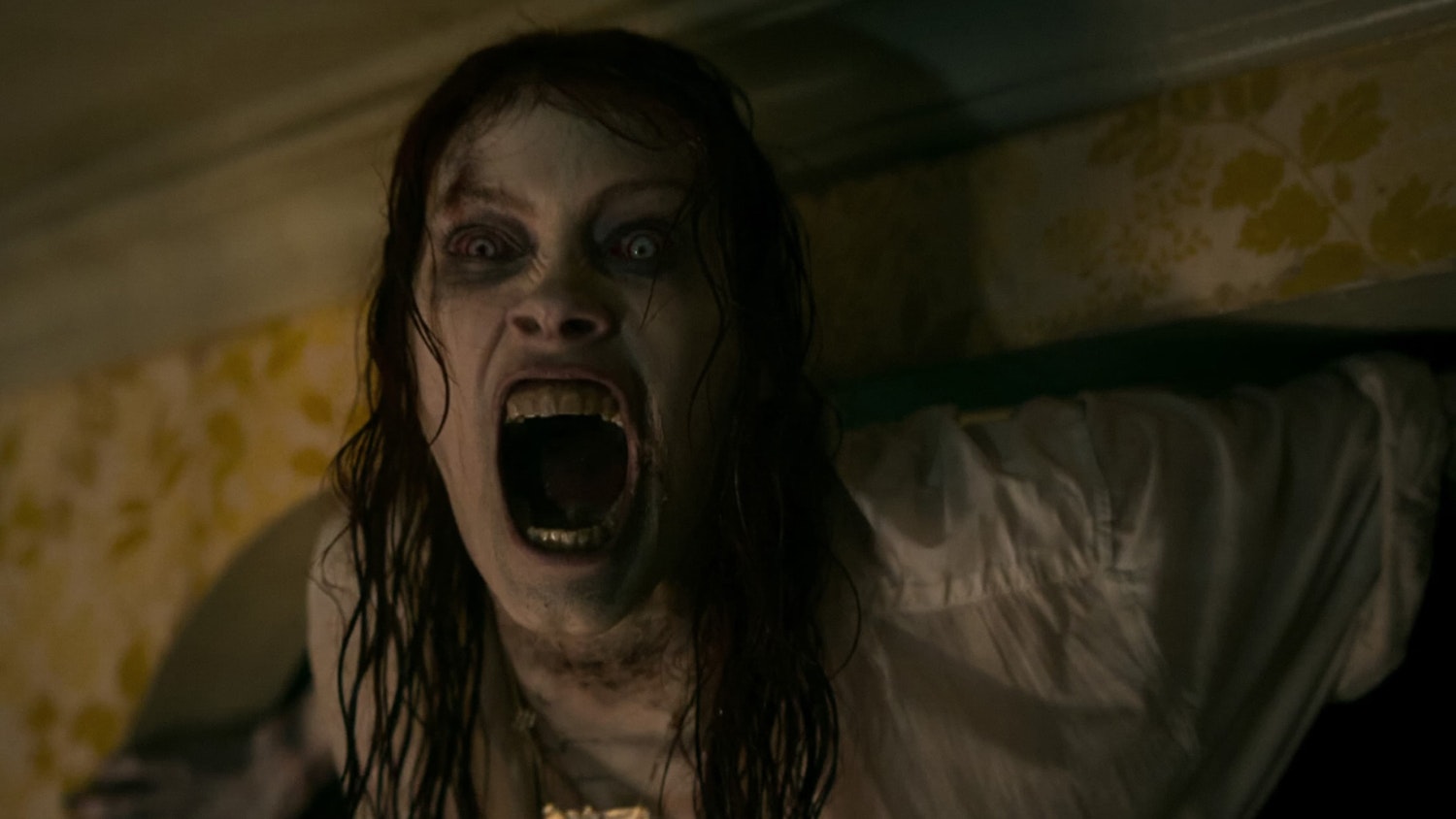
It was a risk for Fede Alvarez to reboot Sam Raimi’s horror classic The Evil Dead in 2013, but that risk paid off and so did its spiritual sequel Evil Dead Rise in 2023. Now Deadline is reporting that the series is getting, not one, but two fresh entries.
We already knew about the Sébastien Vaniček upcoming film that delves into the Deadite universe and should be a proper sequel to the latest film, but we are broadsided that Francis Galluppi and Ghost House Pictures are doing a one-off project set in Raimi’s universe based off of an idea that Galluppi pitched to Raimi himself. That concept is being kept under wraps.
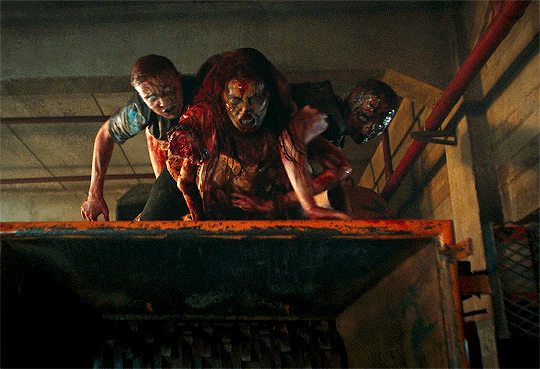
“Francis Galluppi is a storyteller who knows when to keep us waiting in simmering tension and when to hit us with explosive violence,” Raimi told Deadline. “He is a director that shows uncommon control in his feature debut.”
That feature is titled The Last Stop In Yuma County which will release theatrically in the United States on May 4. It follows a traveling salesman, “stranded at a rural Arizona rest stop,” and “is thrust into a dire hostage situation by the arrival of two bank robbers with no qualms about using cruelty-or cold, hard steel-to protect their bloodstained fortune.”
Galluppi is an award-winning sci-fi/horror shorts director whose acclaimed works include High Desert Hell and The Gemini Project. You can view the full edit of High Desert Hell and the teaser for Gemini below:
'Civil War' Review: Is It Worth Watching?
Follow our new YouTube channel "Mysteries and Movies" here.
Movies
‘Invisible Man 2’ Is “Closer Than Its Ever Been” to Happening

Elisabeth Moss in a very well-thought-out statement said in an interview for Happy Sad Confused that even though there have been some logistical issues for doing Invisible Man 2 there is hope on the horizon.
Podcast host Josh Horowitz asked about the follow-up and if Moss and director Leigh Whannell were any closer to cracking a solution to getting it made. “We are closer than we have ever been to cracking it,” said Moss with a huge grin. You can see her reaction at the 35:52 mark in the below video.
Whannell is currently in New Zealand filming another monster movie for Universal, Wolf Man, which might be the spark that ignites Universal’s troubled Dark Universe concept which hasn’t gained any momentum since Tom Cruise’s failed attempt at resurrecting The Mummy.
Also, in the podcast video, Moss says she is not in the Wolf Man film so any speculation that it’s a crossover project is left in the air.
Meanwhile, Universal Studios is in the middle of constructing a year-round haunt house in Las Vegas which will showcase some of their classic cinematic monsters. Depending on attendance, this could be the boost the studio needs to get audiences interested in their creature IPs once more and to get more films made based on them.
The Las Vegas project is set to open in 2025, coinciding with their new proper theme park in Orlando called Epic Universe.
'Civil War' Review: Is It Worth Watching?
Follow our new YouTube channel "Mysteries and Movies" here.
News
Jake Gyllenhaal’s Thriller ‘Presumed Innocent’ Series Gets Early Release Date
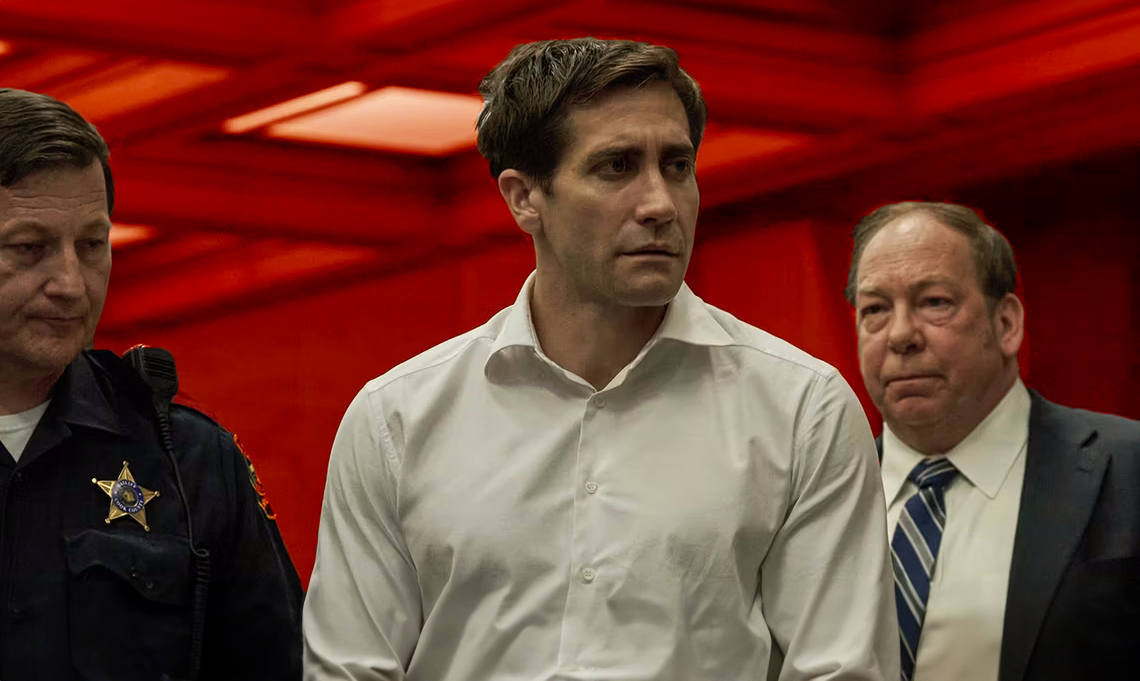
Jake Gyllenhaal’s limited series Presumed Innocent is dropping on AppleTV+ on June 12 instead of June 14 as originally planned. The star, whose Road House reboot has brought mixed reviews on Amazon Prime, is embracing the small screen for the first time since his appearance on Homicide: Life on the Street in 1994.
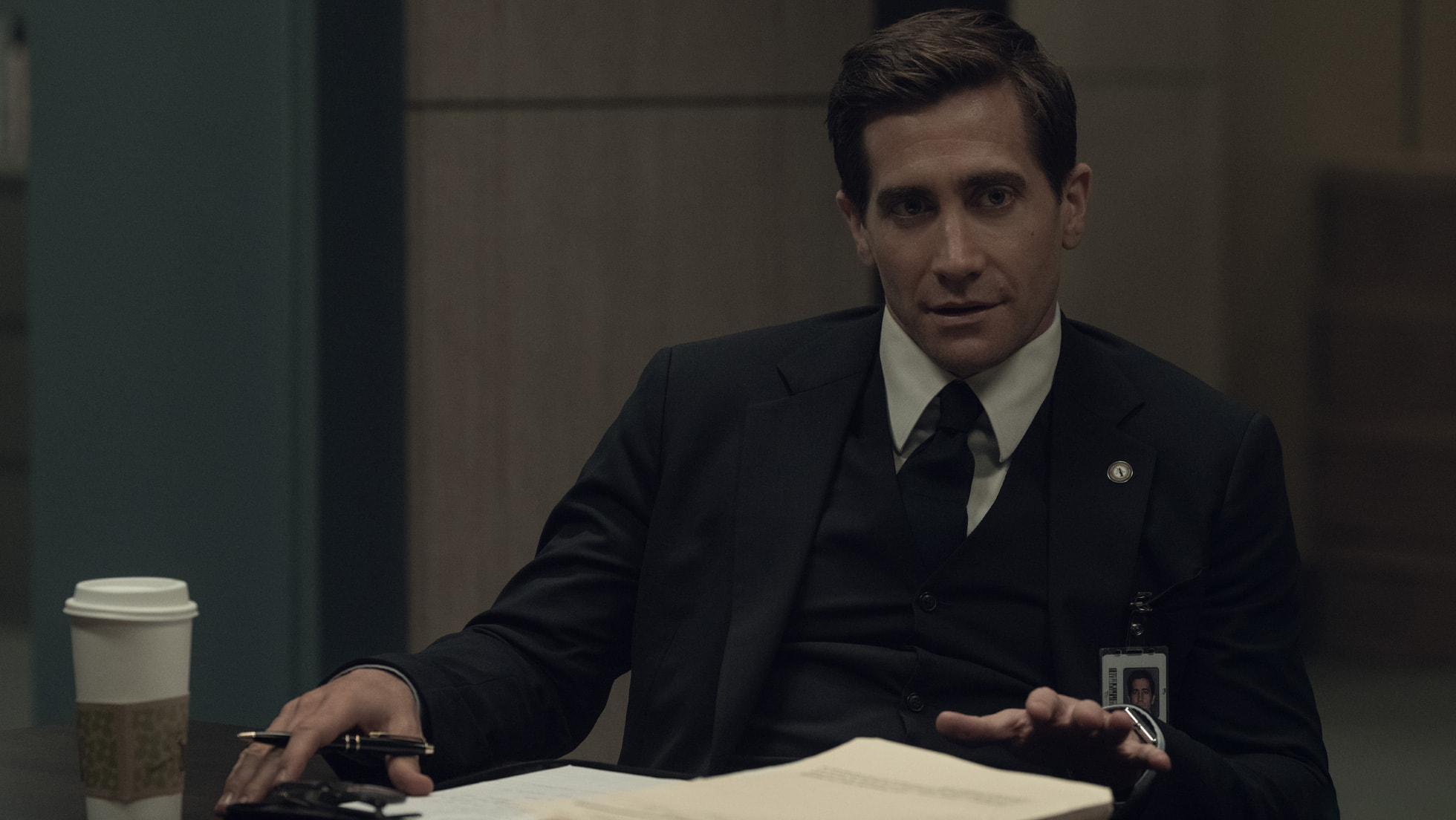
Presumed Innocent is being produced by David E. Kelley, J.J. Abrams’ Bad Robot, and Warner Bros. It is an adaptation of Scott Turow’s 1990 film in which Harrison Ford plays a lawyer doing double duty as an investigator looking for the murderer of his colleague.
These types of sexy thrillers were popular in the ’90s and usually contained twist endings. Here’s the trailer for the original:
According to Deadline, Presumed Innocent doesn’t stray far from the source material: “…the Presumed Innocent series will explore obsession, sex, politics and the power and limits of love as the accused fights to hold his family and marriage together.”
Up next for Gyllenhaal is the Guy Ritchie action movie titled In the Grey scheduled for release in January 2025.
Presumed Innocent is an eight-episode limited series set to stream on AppleTV+ starting June 12.
'Civil War' Review: Is It Worth Watching?
Follow our new YouTube channel "Mysteries and Movies" here.
-
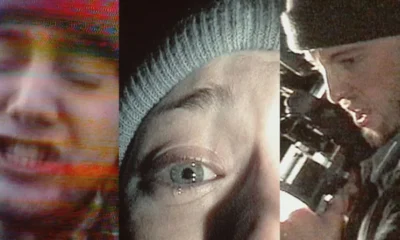
 News6 days ago
News6 days agoOriginal Blair Witch Cast Ask Lionsgate for Retroactive Residuals in Light of New Film
-
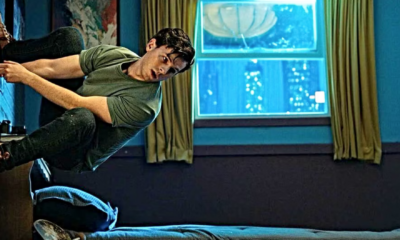
 Movies7 days ago
Movies7 days agoSpider-Man With a Cronenberg Twist in This Fan-Made Short
-
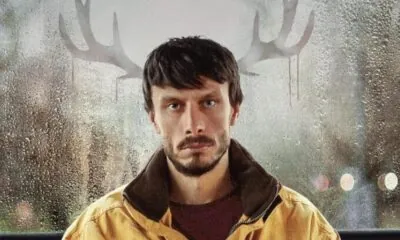
 News4 days ago
News4 days agoPerhaps the Scariest, Most Disturbing Series of The Year
-

 Movies5 days ago
Movies5 days agoNew F-Bomb Laden ‘Deadpool & Wolverine’ Trailer: Bloody Buddy Movie
-
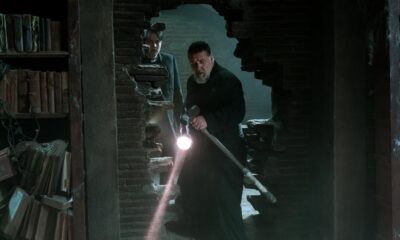
 News5 days ago
News5 days agoRussell Crowe To Star in Another Exorcism Movie & It’s Not a Sequel
-

 Lists4 days ago
Lists4 days agoThrills and Chills: Ranking ‘Radio Silence’ Films from Bloody Brilliant to Just Bloody
-

 Movies5 days ago
Movies5 days ago‘Founders Day’ Finally Getting a Digital Release
-
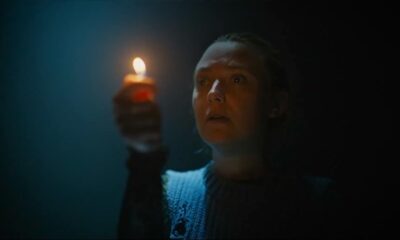
 Movies5 days ago
Movies5 days agoNew ‘The Watchers’ Trailer Adds More to the Mystery
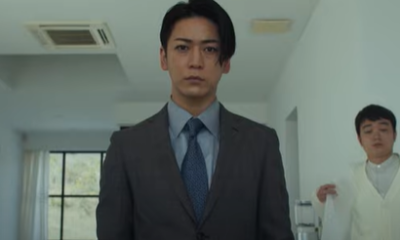

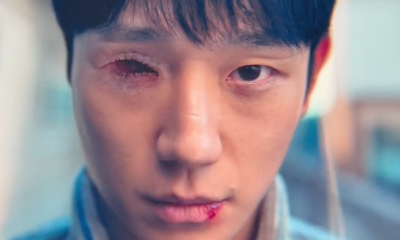

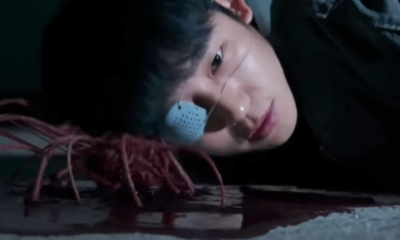
























You must be logged in to post a comment Login